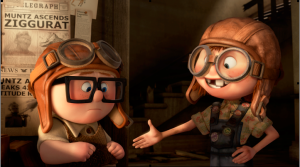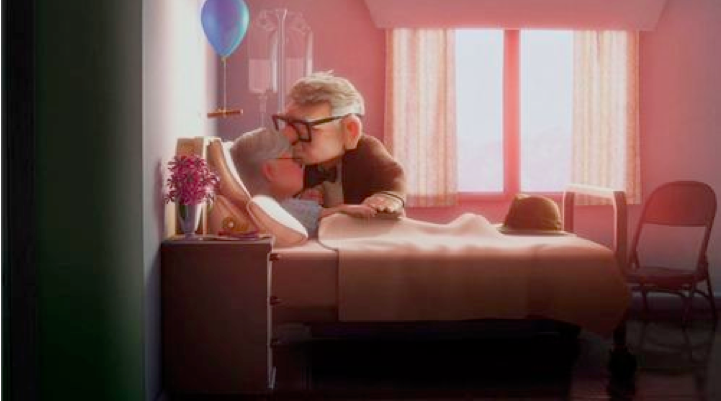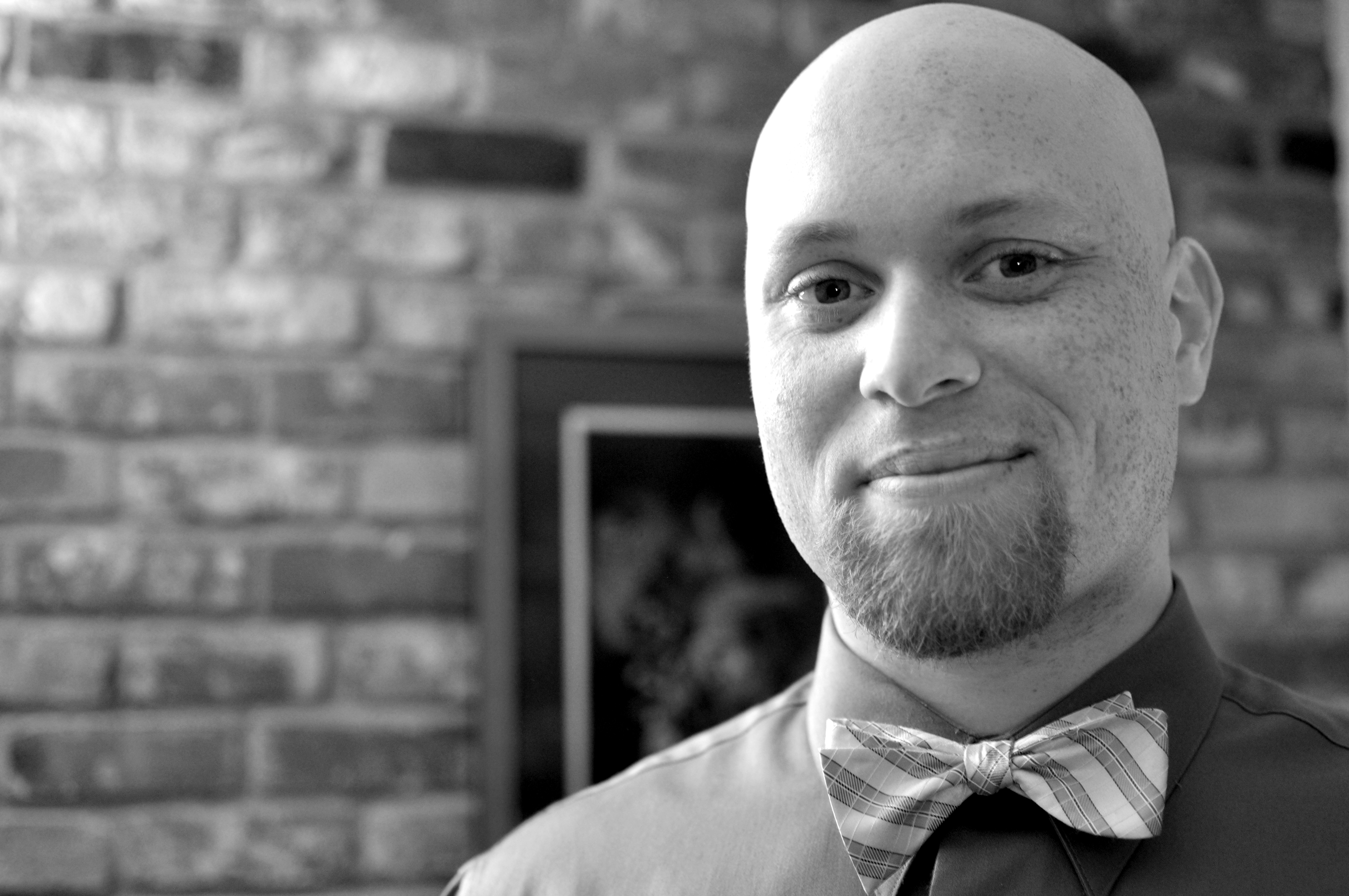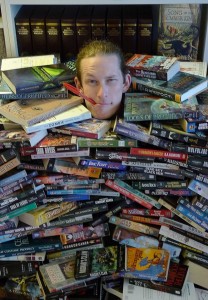A guest post by Tracy Mangum.
I have a confession to make: I don’t like many “romantic” movies. It’s not that I’m unromantic-it’s actually the opposite. The problem is that many “chick flicks” are full of cliches, stock characters, and predictable plots that kill any sense of romance. Most of these films suggest that a woman’s life is meaningless without a man, and that a woman happy being single is simply lying to herself. They teach us that love is only for skinny, beautiful people with straight teeth and perfect hair. The tell us that men are sex-crazed, commitment-phobic animals that have to be manipulated into a romantic relationship. He will ultimately reject the constraints of the relationship and hurt the innocent woman who only wants to care for him. After a period of time, she will begin to move on just as he realizes his mistake, and will demonstrate his newly discovered feelings with grand gestures that straddle the line between affection and stalking.
Romantic comedies too often follow the same plain and boring recipe.
- Boy meets girl (He is handsome, she is adorkable – equal parts awkward and adorable)
- Girl is obviously perfect for boy, but he doesn’t notice since she is awkward and doesn’t wear makeup
- Boy has a girlfriend, but she is a false romantic lead
- Girl will consult with the best friend (possible bad gay male stereotype) for advice
- Girl will get a makeover that includes a new wardrobe and is now stunning
- Boy will now notice girl and unresolved sexual tension begins
- Boy will say something stupid and hurt the girl’s feelings
- Girl cries and runs away
- Boy rejects false romantic lead and chases down girl
- Boy makes a large declaration of love – probably in a large urban area where witnesses ooh and ahh.
This formula is as stale as 11:00am movie theater popcorn that’s been reheated from the previous night’s shows. It’s easy to make these films, they cost less to make as they feature little to no explosions and special effects, and audiences will often just eat them up on date night.
So how do you write a successful love story that doesn’t fall into these tropes? You develop complex and interesting characters and dig deep into the wells of emotion buried deep in their hearts.
- Give me characters that I can fall in love with, so that when they fall in love with each other, I am already emotionally invested.
- Give me a credible reason to keep them apart. It can be anything, class differences, a sinking boat– but if the audience doesn’t buy in, you are dead in the water.
- Don’t write long scenes where your characters talk at a restaurant table – make your script as visually exciting to watch as your dialogue is to hear. “Jewel of the Nile” had the actors sliding down mountains and avoiding alligators and “Annie Hall” had the great lobster scene.
- Tweak the formula. Be clever and ingenious. “Defending Your Life” has the leads meet in the afterlife. “Sleepless in Seattle” has the couple meet in the last five minutes of the film. “Groundhog Day” has the boy relive the day over and over and over until he gets it right.
- Romance means sexy, and comedy means funny. Intimacy – either physical or emotional, leaves people vulnerable, exposed, and can be used for painfully honest comedy that reveal truths about your characters.
- Make it actually ABOUT something. Why are you writing about this couple? What about their story reflects some insight into the relations between men and women, or the human condition? What questions are you asking that the the screenplay’s story answers? Is it gender issues like “Tootsie”, or is it the awkwardness of adolescence like “American Pie”- what are you trying to tell us?
Let’s examine one of my favorite romantic films: “Up” by Pixar.
But it’s an animated film, it’s not a romance right? WRONG.
 The story begins in the childhood of Carl Fredricksen, whose love of adventure leads him to meet a spunky young girl named Ellie. In the first 20 minutes – a sequence that could easily be removed from the film and win and Oscar by itself – we watch Carl and Ellie meet, fall in love, plan for children and adventures that never come to pass, and eventually grow old together, until Ellie passes away, leaving Carl’s body and soul deflated like a balloon. Grown men are crying in the audience, and not one word has been spoken.
The story begins in the childhood of Carl Fredricksen, whose love of adventure leads him to meet a spunky young girl named Ellie. In the first 20 minutes – a sequence that could easily be removed from the film and win and Oscar by itself – we watch Carl and Ellie meet, fall in love, plan for children and adventures that never come to pass, and eventually grow old together, until Ellie passes away, leaving Carl’s body and soul deflated like a balloon. Grown men are crying in the audience, and not one word has been spoken.
The house has come to symbolize Ellie to Carl, and he flies her to South America with hot air balloons to fulfill a promise they made to each other to visit there. Along the way, Carl “adopts” a boy scout, a talking dog, a large and awkward bird, and must deal with love, loss, regret, hope, and closure. Ultimately he has to leave Ellie and the house behind and go live his life, and have new adventures on his own. He doesn’t forget Ellie, but he doesn’t have to literally have her attached to him at all times.
The magicians at Pixar had us all thinking this was an innocent kids movie and while we were looking one way, they wallop us with emotions from our blind side. It’s unique, refreshing, and beautiful.
Write from the heart and from the gut. Make it real, make it honest, and make it count.
I’m a local Salt Lake City filmmaker and blogger.
My short film “Father Knows Flesh” won Best Picture, Best Director, and Best Actor at the SL Comic Con FanX Film Festival last year. I cover the Marvel Cinematic Universe, Agents of Shield, Gotham, and Disney for Lord of the Laser Sword.




